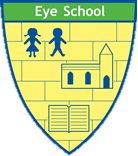PSHE & RSE
PSHE is the study of how we can learn to stay healthy, safe and prepare for our futures in modern day Britain.
Effective PSHE (Personal, Social, Health, and Economic) education should equip children and young people with the knowledge, understanding, attitudes and practical skills to live healthy, safe, productive and fulfilled lives. RSE (Relationships and Sex Education) and Citizenship are all integrated into our PSHE curriculum.
Beyond this, PSHE education should also enable children and young children to reflect on and clarify their own values and attitudes, and explore the complex and sometimes conflicting range of values and attitudes they encounter now and will do in the future.
PSHE education is therefore also about developing young people’s sense of identity, their capacity to relate to other people and handle setbacks.
Our PSHE Curriculum explores six key themes:
KEY THEME 1: FAMILY AND RELATIONSHIPS
KEY THEME 2: HEALTH AND WELLBEING
KEY THEME 3: SAFETY AND THE CHANGING BODY
KEY THEME 4: CITIZENSHIP
KEY THEME 5: ECONOMIC WELLBEING
KEY THEME 6: TRANSITION
Year 6 also works through a seventh theme, which is called 'IDENTITY'.
Please see the summary sheets below in the attachments for these areas.
*Our curriculum is supplemented by KAPOW.
Alignment with our vision and values
PSHE (Personal, Social, Health, and Economic) education plays a vital role in aligning with our primary school’s vision of "living life in all its fullness," inspired by John 10:10. This biblical vision emphasises living a rich, meaningful life, and PSHE supports this by equipping students with essential life skills, knowledge, and attitudes necessary for their overall well-being.
Through PSHE, students learn about health, relationships, safety, and their role in society. This education helps them make informed choices, develop resilience, and foster positive relationships, enabling them to thrive in all aspects of life. By understanding their emotions, respecting others, and practising self-care, students are better prepared to live fully and contribute positively to their communities.
Moreover, PSHE promotes values such as empathy, kindness, and respect, which are key components of our school’s ethos and GROW standards. It encourages students to be responsible, compassionate individuals who can navigate the complexities of life with confidence and integrity, truly embodying the vision of "life in all its fullness."
In essence, PSHE provides the foundation for students to grow into well-rounded individuals who live out the school’s values daily, reflecting the fullness of life that our school seeks to cultivate.
Opportunities for developing spirituality
PSHE provides various opportunities to develop spirituality by encouraging pupils to explore their values, beliefs, and sense of purpose. Through discussions on topics such as self-awareness, empathy, and ethical decision-making, PSHE fosters reflection on personal identity and relationships with others. It also promotes understanding of different cultures and perspectives, helping pupils to appreciate the diversity of human experience. By addressing issues like mental health, well-being, and personal growth, PSHE supports the development of inner strength and resilience, key aspects of spirituality. Ultimately, PSHE helps pupils to cultivate a deeper connection to themselves, others, and the wider world.
RSE
The Relationships Education, RSE and Health Education (England) Regulations 2019 made Relationships Education compulsory in all primary schools. Sex education is not compulsory in primary schools.
All primary school children are required to learn about relationships and health. Relationships and Health Education comprises two distinct areas:
- Relationships
- Physical health and mental wellbeing
The Relationships and Health Education 2020 curriculum is designed to:
- Help all children grow up healthy, happy and safe.
- Give all children the knowledge to make informed decisions about their wellbeing, health and relationships.
- Support all children to manage the challenges and opportunities of modern Britain.
- Prepare all children for successful adult lives.
By the time a child finishes primary school, they will have been taught about the following in Relationships Education:
- Family and people who care for them.
- Caring friendships.
- Respectful relationships.
- Online relationships.
- Being safe.
Physical health and mental wellbeing in primary schools
The physical health and mental wellbeing part of the RSE curriculum teach the children how to:
- Make good decisions about their own health and wellbeing.
- Recognise issues in themselves.
- Recognise issue in others.
- Seek support as early as possible when issues arise.
By the time children finish primary school, they will have been taught about the following:
- Mental wellbeing.
- Internet safety and harms.
- Physical health and fitness.
- Healthy eating.
- Facts about drugs, alcohol and drugs and the risks
associated with them. - Health and prevention of illness.
- Basic first aid.
- Changes to the adolescent body.
The right to withdraw
Parents cannot withdraw their child from any part of the Relationships and Health Education aspects of the RSE curriculum. It is important for ALL children to be taught the content on such essential matters as friendships and keeping safe. Please see the parent guide below for more information.
There are separate rules for withdrawing a child from Sex Education. Sex education is separate from the Relationships and Health curriculum and parents can request that the headteacher withdraws their child from some or all of the lessons on Sex Education that extend beyond the science curriculum.
Please get in touch with your child's class teacher to find out more about the process for this.
